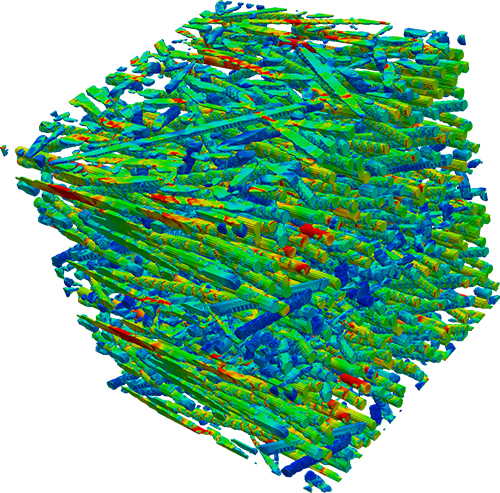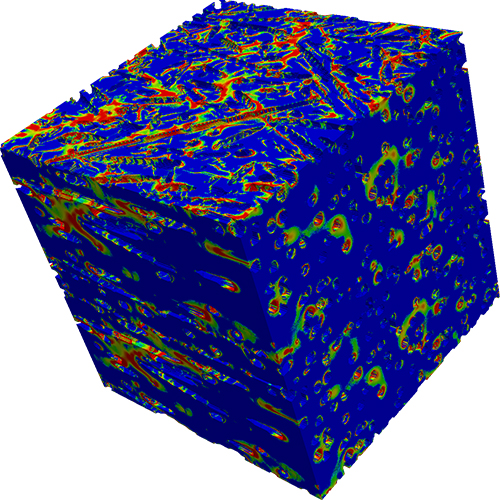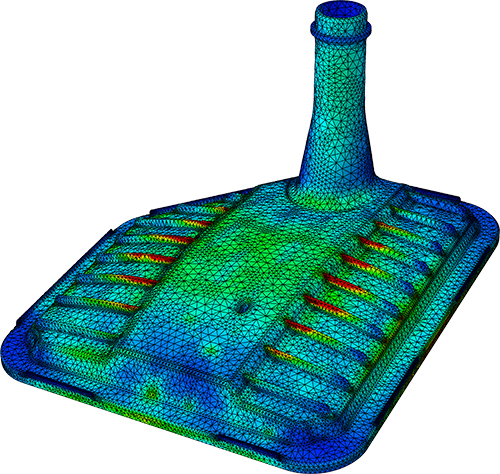Fiber reinforced plastic components are essential in different applications as e.g. in automotive or medical engineering. In the project MuSiko we develop multiscale simulation techniques for reinforced components.
For microstructured materials, the macroscopic deformation and failure behavior significantly depends on the microstructure, which is influenced by the manufacturing process. For fiber reinforced polymer matrices as for example polybutylenterephthalat (PBT) matrix failure, fiber breaking or delamination may occur. In order to predict these effects often a pure macroscopic analysis is not sufficient. Thus, very complicated phenomenological models are required, which are only valid for certain failure scenarios.
Joint Research Project MuSiKo
In the BMBF joint research project MuSiKo we develop efficient multiscale simulation techniques in consultation with scientists from the universities of Kaiserslautern and Saarbrücken as well as the Karlsruhe Institute of Technology. The abbreviation MuSiKo stands for "Adaptive Approximation Techniques for the Multiscale Simulation of Nonlinear Composite Behavior". The industry partners Robert Bosch GmbH and Siemens PLM Software are supporting the research project.
The applied multiscale approach is based on a coupled solution of the macroscopic and the microscopic problem. Only the characteristics of the matrix the fibers as well as the local orientation of the fibers have to be determined as input parameters for the simulation. The mechanical behavior at the level of component results in the averaged microscopic values.



